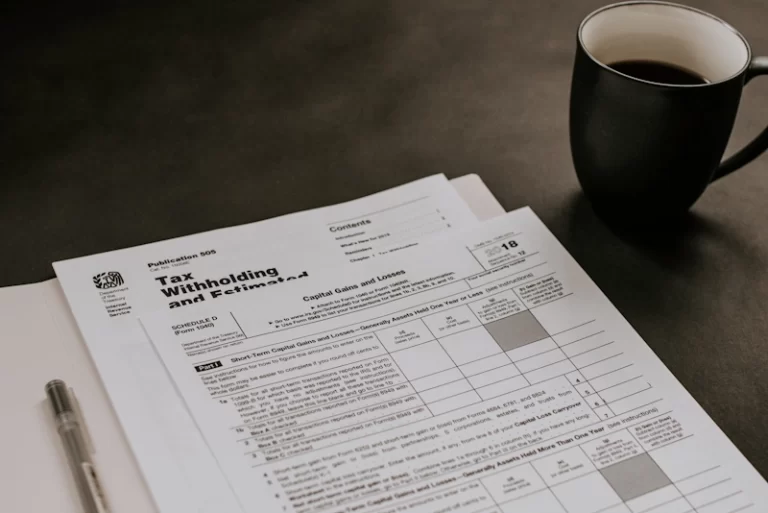Introduction
Welcome to our comprehensive guide on the Unique Entity Number (UEN) system in Singapore. In this article, we will explore the significance of UEN and how it impacts businesses operating in Singapore. Whether you are starting a new business or managing an existing one, understanding the UEN system is essential for smooth operations and compliance with local regulations.
The Unique Entity Number, or UEN, is a 9-digit or 10-digit identification number assigned to all businesses and local entities in Singapore. It plays a crucial role in simplifying interactions with various government agencies, facilitating tax filing, and ensuring accurate data collection. Essentially, the UEN acts as a unique identifier for each business, enabling seamless transactions and communication with authorities.
In the following sections, we will dive deeper into what UEN is, the types of UEN, and the process for obtaining one. We will also introduce the recently launched Special UEN (SUN) and discuss its benefits and application process. By the end of this guide, you will have a thorough understanding of UEN and its importance in the Singapore business landscape.
What is UEN?
The Unique Entity Number (UEN) is a 9-digit identification number assigned to all business entities operating in Singapore. This number serves as a unique identifier for each entity, ensuring streamlined interactions with various government agencies and other organizations.
Purpose and Function of UEN
The primary purpose of the UEN is to simplify and consolidate multiple identification numbers into one. This makes it easier for businesses to manage their interactions with different government bodies. Here are some key functions of the UEN:
- Unique Identifier: Each UEN is a unique number assigned to a registered entity, ensuring that no two entities share the same identifier.
- Government Transactions: Entities use their UEN to interact with various government agencies for tasks like filing taxes, applying for permits, or managing compliance.
- Public Access: The UEN is often required for checking the registration status and legitimacy of an entity through platforms like ACRA’s public business information services.
Importance of UEN in Business Operations
Having a UEN is vital for the smooth operation of any business in Singapore. It ensures that your business can:
- Interact Seamlessly with Government Agencies: Whether you are dealing with tax authorities, applying for licenses, or updating your business profile, the UEN simplifies these processes.
- Maintain Compliance: The UEN ensures that your business adheres to regulatory requirements, reducing the risk of penalties.
- Enhance Credibility: A UEN adds a layer of legitimacy to your business, making it easier to build trust with clients and partners.
Overall, the UEN is an indispensable part of doing business in Singapore, ensuring efficient operations and compliance with local regulations.
Types of UEN
In Singapore, the Unique Entity Number (UEN) system categorizes business entities into different types based on their nature and origin. Understanding these types is crucial for proper registration and compliance.
Ordinary UEN for Local Businesses
An Ordinary UEN is assigned to local entities, including:
- Private Limited Companies: These are locally incorporated companies with limited liability.
- Sole Proprietorships: Businesses owned by a single individual.
- Partnerships: Entities owned by two or more individuals or companies.
- Limited Liability Partnerships (LLPs): Partnerships with limited liability for the partners.
Obtaining a UEN
Acquiring a Unique Entity Number (UEN) is a crucial step for any business entity operating in Singapore. Here’s a detailed guide on how to obtain a UEN, the necessary documents, and the expected timeline.
Process for Obtaining a UEN
The process for obtaining a UEN varies slightly depending on the entity type. Generally, the steps include:
- Step 1: Determine your entity type (e.g., private limited company, sole proprietorship, foreign entity).
- Step 2: Visit the BizFile+ portal for local entities or the GoBusiness Licensing portal for other types of entities.
- Step 3: Fill out the online registration form with accurate details about your business.
- Step 4: Submit the form along with the required documents.
- Step 5: Pay the applicable registration fee.
Required Documents and Information
To successfully register for a UEN, you will need to provide specific documents and information, including:
- Business Name: The official name of your business.
- Registered Address: The physical address where your business operates.
- Entity Type: Specify whether it’s a local company, foreign entity, or other types.
- Identification Documents: For local businesses, this may include NRIC; for foreign entities, documents proving foreign incorporation.
- Contact Information: Email and phone number for correspondence.
Timeline for Receiving a UEN
The timeline for receiving a UEN can vary. Generally, it takes:
| Entity Type | Estimated Time |
| Local Companies | 1-2 business days |
| Foreign Entities | 3-5 business days, depending on document verification |
Once you receive your UEN, it will be used in all interactions with local government agencies, for tax purposes, and in various business transactions.
By following these steps and ensuring you have all the required documents, you can smoothly obtain a UEN and start your business operations in Singapore.
Uses of UEN
The Unique Entity Number (UEN) serves several important functions for businesses operating in Singapore. Below, we outline its primary uses, including registration with government agencies, tax purposes, and data collection and reporting.
Registration with Government Agencies
One of the main uses of a UEN is for registration with government agencies. A UEN is required when interacting with ACRA (Accounting and Corporate Regulatory Authority), IRAS (Inland Revenue Authority of Singapore), and other government bodies. It simplifies processes such as applying for licenses, permits, and other essential documentation. For example, when a business registers for the GST (Goods and Services Tax), the UEN is used as a reference.”
Tax Purposes
The UEN also plays a crucial role in tax purposes. It is used for corporate tax filing, GST registration, and other tax-related activities. By using the UEN, businesses can ensure that all their tax records are accurately maintained and easily accessible. For instance, when filing annual corporate tax returns, businesses must quote their UEN to ensure proper identification and processing by IRAS.
Introduction of Special UEN (SUN)
In recent years, Singapore has introduced the Special UEN (SUN) to cater to specific types of businesses and entities. Below, we explore what SUN is, who is eligible for it, and the benefits it offers.
Definition and Purpose of SUN
The Special UEN (SUN) is a unique entity number designed to provide additional identification and benefits for certain entities. Unlike the ordinary UEN, the SUN enable the business owner to choose, at a fee, a preferred SUN from the list of reserved UENs during the entity incorporation / registration.
Applying for a SUN
Applying for a Special UEN (SUN) involves a straightforward process. Below, we outline the steps, required documents, and timeline for obtaining a SUN.
Process for Obtaining a SUN
To apply for a SUN, follow these steps:
- Determine Eligibility: Ensure your entity meets the eligibility criteria for a SUN. Refer to the guidelines provided by the Accounting and Corporate Regulatory Authority (ACRA).
- Submit Application: Complete the application form available on the ACRA website. Ensure all required fields are accurately filled out.
- Pay Fees: Pay the applicable fees associated with the SUN application. The fee structure can be found on the ACRA website.
- Review and Approval: Your application will be reviewed by ACRA, and you will be notified of the outcome.
Required Documents and Information
When applying for a SUN, you will need to provide the following documents and information:
- Business Profile: A detailed business profile including the business name, registered address, and business activities.
- Supporting Documents: Documents that support your eligibility for a SUN, such as non-profit status certificates or educational licenses.
- Identification Information: Information about the entity owners and key personnel, including their identification numbers and contact details.
Timeline for Receiving a SUN
The timeline for receiving a SUN can vary based on the completeness of your application and the review process. Generally, you can expect:
| Step | Estimated Time |
| Submission of Application | Immediate |
| Review by ACRA | 5-10 business days |
| Issuance of SUN | Once approved, typically within 1-2 business days |
By following these steps and providing the necessary documentation, your entity can successfully obtain a SUN and enjoy the associated benefits.
Conclusion
In summary, the Unique Entity Number (UEN) system is a cornerstone of business operations in Singapore. This comprehensive guide has outlined the various types of UENs:
- Ordinary UEN: Assigned to local companies, partnerships, and sole proprietorships.
- Special UEN (SUN): Tailored for certain entities like non-profits and educational institutions.
The UEN system plays a crucial role in streamlining government transactions, facilitating corporate tax filing, and ensuring accurate data collection. It provides a unified identifier for business entities to interact with various government bodies, enhancing efficiency and transparency.
Special UEN (SUN) offers additional benefits for eligible entities, making it easier for them to manage their operations and comply with regulatory requirements. Understanding the application process and the necessary documentation can significantly streamline obtaining a SUN.
In conclusion, having a UEN is indispensable for businesses in Singapore. It not only simplifies interactions with government agencies but also establishes a seamless framework for business activities and compliance. Whether you are a local company, a foreign entity, or a specialized organization, securing the appropriate UEN is a critical step towards operational success in Singapore’s dynamic business environment.





